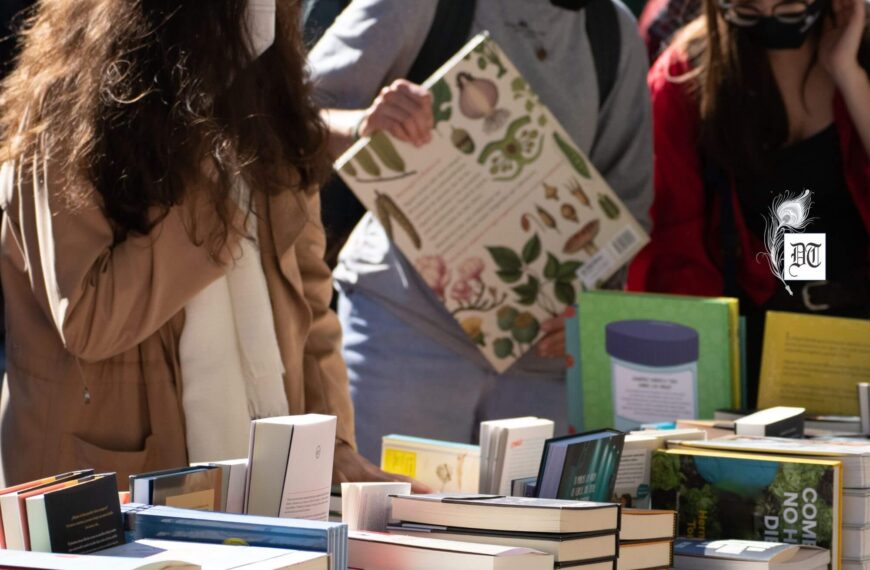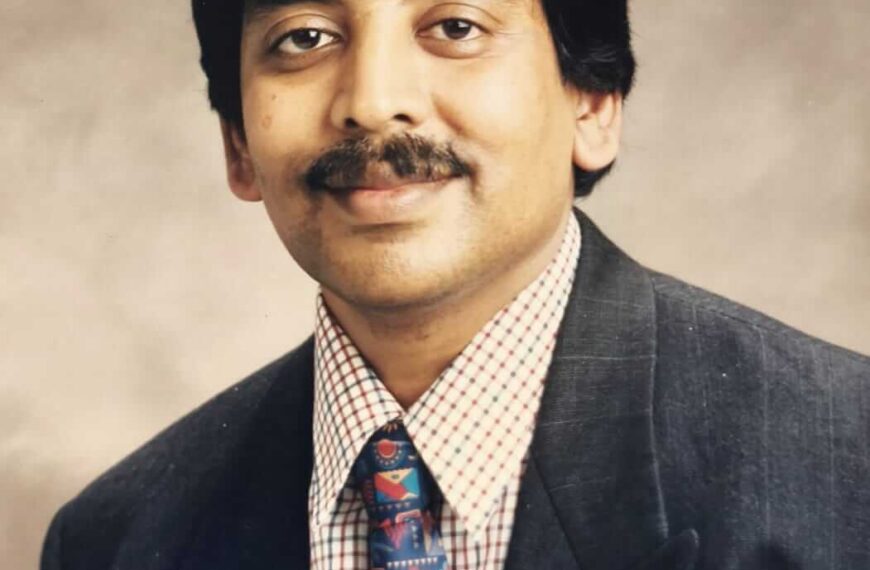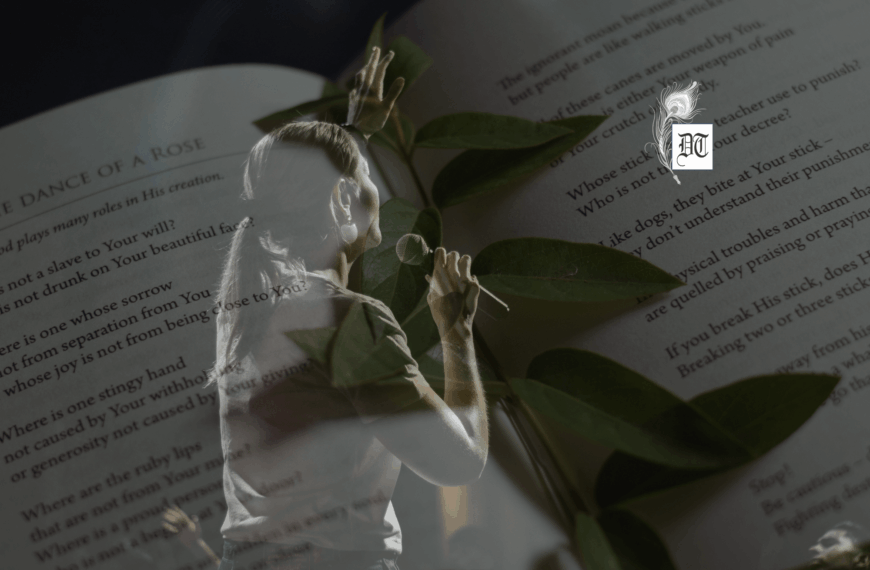Thwarted Escape: An Immigrant’s Wayward Journey, the debut memoir/autobiographical narrative nonfiction by Lopamudra Banerjee, is a subtle, complex and organic journey of her transformation from a small-town girl in India to a woman who reconnects with her ancestral home, her emotionally fraught childhood and puberty, all the while looking for the meaning and essence of ‘home’. The book, published by Authorspress, in October 2016, which delves into the themes of love, loss, family, womanhood, and also, Diaspora and migration, has already been critically acclaimed as a Journey Awards 2016 recipient. In conversation with the author, Subhajit discussed her journey about writing and publishing the book, exclusively for Different Truths.
Different Truths (DT) correspondent picked the brains of the novelist, Lopamudra Banerjee, at Kolkata, recently.
![]() Subhajit: How do you feel after publishing your debut novel, Thwarted Escape?
Subhajit: How do you feel after publishing your debut novel, Thwarted Escape?
![]() Lopamudra: It is an amazing and incredible feeling when a letter that a woman writes to her unborn daughter eight years back in time shapes up into a full-length personal essay/memoir and branches out into myriad other life-changing memoirs, all of which coalesce and converge as interconnected chapters of her inward journey as a woman, a daughter and a mother, a Bengali immigrant in the US. This is precisely how Thwarted Escape: An Immigrant’s Wayward Journey has grown from the seed of an essay to a book-length memoir/ autobiographical novel as I myself have grown and evolved along with it. It is a priceless experience for me.
Lopamudra: It is an amazing and incredible feeling when a letter that a woman writes to her unborn daughter eight years back in time shapes up into a full-length personal essay/memoir and branches out into myriad other life-changing memoirs, all of which coalesce and converge as interconnected chapters of her inward journey as a woman, a daughter and a mother, a Bengali immigrant in the US. This is precisely how Thwarted Escape: An Immigrant’s Wayward Journey has grown from the seed of an essay to a book-length memoir/ autobiographical novel as I myself have grown and evolved along with it. It is a priceless experience for me.
![]() Subhajit: How did you choose the name, Thwarted Escape, for this novel?
Subhajit: How did you choose the name, Thwarted Escape, for this novel?
![]() Lopamudra: Thwarted Escape, in its essence, you can say, is an expanded love letter addressed to Kolkata and to my adopted home in the US, written in the form of an autobiography where the quest for the true meaning of ‘home’ lingers, even as I try to find my feet, my self-identity ten thousand miles away from my Bengali hometown. The title ‘Thwarted Escape’ touches upon the metaphor of home and the act of subconsciously embracing the physical and emotional landscape of our birthplace, however much we evade it. It is also about a woman’s self-chosen exile in the US, the back story behind that exile and also the sense of fluctuation/oscillation that she feels in both the worlds. The moment she thinks she has assimilated in her adopted home, she disintegrates, in nostalgia and pain. When she revisits her hometown time and again, she realizes her volatile, passionate ongoing journey with her roots and the fact that she has not been able to break free from it at all.
Lopamudra: Thwarted Escape, in its essence, you can say, is an expanded love letter addressed to Kolkata and to my adopted home in the US, written in the form of an autobiography where the quest for the true meaning of ‘home’ lingers, even as I try to find my feet, my self-identity ten thousand miles away from my Bengali hometown. The title ‘Thwarted Escape’ touches upon the metaphor of home and the act of subconsciously embracing the physical and emotional landscape of our birthplace, however much we evade it. It is also about a woman’s self-chosen exile in the US, the back story behind that exile and also the sense of fluctuation/oscillation that she feels in both the worlds. The moment she thinks she has assimilated in her adopted home, she disintegrates, in nostalgia and pain. When she revisits her hometown time and again, she realizes her volatile, passionate ongoing journey with her roots and the fact that she has not been able to break free from it at all.
![]() Subhajit: What do you think distinguishes your autobiographical novel from other writings being published and sold, at present?
Subhajit: What do you think distinguishes your autobiographical novel from other writings being published and sold, at present?
![]() Lopamudra: First and foremost, its intensely lyrical voice and tone. I have throughout tried to chisel the book as a diaspora and migration narrative told in the lens of a wistful immigrant woman, and in the process, I chose to incorporate aspects of an autobiographical novel in it, real-life dialogues and characters, settings and a loose ‘factual novel-like curve’, as Dr. A.V. Koshy, noted author, poet, critic and academician has observed in his critic review of the book. While I myself have been quite a fan of fiction in the sub-genre of Indian Diaspora, I don’t think a lot many books there have taken you to a real-life woman’s inward journey and convey through an organically connected narrative, the emotional and spiritual upheavals in her life, the hills, bumps, crests and ridges on the way, not fictional, but real, palpable bumps and bolts. You have to see if you are ready to explore them all as a reader.
Lopamudra: First and foremost, its intensely lyrical voice and tone. I have throughout tried to chisel the book as a diaspora and migration narrative told in the lens of a wistful immigrant woman, and in the process, I chose to incorporate aspects of an autobiographical novel in it, real-life dialogues and characters, settings and a loose ‘factual novel-like curve’, as Dr. A.V. Koshy, noted author, poet, critic and academician has observed in his critic review of the book. While I myself have been quite a fan of fiction in the sub-genre of Indian Diaspora, I don’t think a lot many books there have taken you to a real-life woman’s inward journey and convey through an organically connected narrative, the emotional and spiritual upheavals in her life, the hills, bumps, crests and ridges on the way, not fictional, but real, palpable bumps and bolts. You have to see if you are ready to explore them all as a reader.
![]() Subhajit: What inspired you to write and get it published?
Subhajit: What inspired you to write and get it published?
![]() Lopamudra: As I said earlier, the seed of this book was first sown when I was in the third trimester of my first pregnancy. A dreamy, anxious immigrant Indian, back then, trying to strike roots in my adopted home in a small Midwestern American town in Nebraska, I was enrolled in a Creative Writing program at the University of Nebraska at Omaha, with an emphasis in nonfiction writing. The process of writing the book began then, quite inconsequentially, taking cues from writing prompts and other creative writing assignments, which I didn’t think as a serious publishing pursuit for quite some time. But as the years passed, the narrative voice that I was constantly striving to bring forth through the individual chapters reared its head stronger, and then I realised it had a destiny of its own, a destiny to be published and read by strangers, readers beyond my creative nonfiction classrooms. Publication of some individual chapters of the book as stand-alone stories in some esteemed journals/e-mags like Café Disensus, eFiction India, Huffington Post USA, River Poets’ Journal and Episteme gave me the conviction that the book needs to be published in print. After both my parents’ demise, when I was in India this year, I got in touch with Authorspress, my publisher, and the publication happened as a tribute to my departed parents.
Lopamudra: As I said earlier, the seed of this book was first sown when I was in the third trimester of my first pregnancy. A dreamy, anxious immigrant Indian, back then, trying to strike roots in my adopted home in a small Midwestern American town in Nebraska, I was enrolled in a Creative Writing program at the University of Nebraska at Omaha, with an emphasis in nonfiction writing. The process of writing the book began then, quite inconsequentially, taking cues from writing prompts and other creative writing assignments, which I didn’t think as a serious publishing pursuit for quite some time. But as the years passed, the narrative voice that I was constantly striving to bring forth through the individual chapters reared its head stronger, and then I realised it had a destiny of its own, a destiny to be published and read by strangers, readers beyond my creative nonfiction classrooms. Publication of some individual chapters of the book as stand-alone stories in some esteemed journals/e-mags like Café Disensus, eFiction India, Huffington Post USA, River Poets’ Journal and Episteme gave me the conviction that the book needs to be published in print. After both my parents’ demise, when I was in India this year, I got in touch with Authorspress, my publisher, and the publication happened as a tribute to my departed parents.
![]() Subhajit: What made you write this piece as an autobiographical narrative, as a nonfiction work?
Subhajit: What made you write this piece as an autobiographical narrative, as a nonfiction work?
![]() Lopamudra: Well, to answer this question, the material I chose to focus on, while writing the book, was largely based on real life experiences, leading the readers on to a passionate, volatile journey of my life as a woman, to the curves that lead them from my girlhood to adulthood, the desires, yearnings, the conflicts and struggles, the nostalgia and pain that has defined my existence as an immigrant woman in the US. The narrator of the book is none other than my own alter-ego. Yes, I could have chosen a fictional narrative to represent it all, but then the emotions would not have been as raw, as palpable as it is in its nonfictional form.
Lopamudra: Well, to answer this question, the material I chose to focus on, while writing the book, was largely based on real life experiences, leading the readers on to a passionate, volatile journey of my life as a woman, to the curves that lead them from my girlhood to adulthood, the desires, yearnings, the conflicts and struggles, the nostalgia and pain that has defined my existence as an immigrant woman in the US. The narrator of the book is none other than my own alter-ego. Yes, I could have chosen a fictional narrative to represent it all, but then the emotions would not have been as raw, as palpable as it is in its nonfictional form.
![]() Subhajit: What were you going through while writing this book?
Subhajit: What were you going through while writing this book?
![]() Lopamudra: A lot, actually. The paradigm shift of parenthood, the exhilaration, the bewilderment and also the alienation of finding new homes/new moorings, the shuttling back and forth to Kolkata, my hometown in Barrackpore and the US, completing my graduate studies in the university, the stabbing pain and reality of losing both my parents, back to back, in 2013 and 2016. All of these experiences contributed to the making of this book.
Lopamudra: A lot, actually. The paradigm shift of parenthood, the exhilaration, the bewilderment and also the alienation of finding new homes/new moorings, the shuttling back and forth to Kolkata, my hometown in Barrackpore and the US, completing my graduate studies in the university, the stabbing pain and reality of losing both my parents, back to back, in 2013 and 2016. All of these experiences contributed to the making of this book.
![]() Subhajit: Did you send the manuscript to any contest? If so, were you awarded for it?
Subhajit: Did you send the manuscript to any contest? If so, were you awarded for it?
![]() Lopamudra: I just had a chance encounter with Kiffer Brown, founder of Chanticleer Reviews and Media LLC at the AWP Writers’ Conference in Seattle, USA, and found out they were taking manuscript entries for the Journey Awards 2014 (Narrative Nonfiction). Out of gut feeling, I entered my manuscript of ‘Thwarted Escape’ for the contest, and towards the beginning of 2015, I stumbled upon their website and found out that my manuscript was a finalist and also a First Place Category winner for the Journey Awards. It was a heady feeling when the award package reached my US home address, including the badge of honor. But the real excitement came when Thwarted Escape got a 5-star review from an award-winning journalist, J O’Reiley, who is a part of the CBR review team. The review can be accessed here, and also in the Amazon and Goodreads page of the book.
Lopamudra: I just had a chance encounter with Kiffer Brown, founder of Chanticleer Reviews and Media LLC at the AWP Writers’ Conference in Seattle, USA, and found out they were taking manuscript entries for the Journey Awards 2014 (Narrative Nonfiction). Out of gut feeling, I entered my manuscript of ‘Thwarted Escape’ for the contest, and towards the beginning of 2015, I stumbled upon their website and found out that my manuscript was a finalist and also a First Place Category winner for the Journey Awards. It was a heady feeling when the award package reached my US home address, including the badge of honor. But the real excitement came when Thwarted Escape got a 5-star review from an award-winning journalist, J O’Reiley, who is a part of the CBR review team. The review can be accessed here, and also in the Amazon and Goodreads page of the book.
![]() Subhajit: Did you show your piece to any professional editor or writer before publishing it? How did he or she help you in editing it to make it print-ready?
Subhajit: Did you show your piece to any professional editor or writer before publishing it? How did he or she help you in editing it to make it print-ready?
![]() Lopamudra: The manuscript has gone through the editorial scanner quite a number of times starting from its inception, and my creative nonfiction mentors, Dr. Lisa Knopp, an award-winning author/essayist (who was also my thesis advisor in my Masters’ program), and Dr. John T. Price, also an award-winning memoirist/essayist/academician have been the two most faithful midwives in shaping it up in its current form. They gave me creative inputs to intensify and brush up the narrative more powerfully. Also, Dr. Santosh Bakaya, Dr. A. V. Koshy two esteemed authors/poets/academicians have been crucial in nudging me to get it published in print. As my first beta-reader, my friend and co-editor of Defiant Dreams, Rhiti Bose has seen its potential as a literary work and egged me on to publish it.
Lopamudra: The manuscript has gone through the editorial scanner quite a number of times starting from its inception, and my creative nonfiction mentors, Dr. Lisa Knopp, an award-winning author/essayist (who was also my thesis advisor in my Masters’ program), and Dr. John T. Price, also an award-winning memoirist/essayist/academician have been the two most faithful midwives in shaping it up in its current form. They gave me creative inputs to intensify and brush up the narrative more powerfully. Also, Dr. Santosh Bakaya, Dr. A. V. Koshy two esteemed authors/poets/academicians have been crucial in nudging me to get it published in print. As my first beta-reader, my friend and co-editor of Defiant Dreams, Rhiti Bose has seen its potential as a literary work and egged me on to publish it.
![]() Suhhajit: As a writer, what do you think is the future of non-fiction writing in literature?
Suhhajit: As a writer, what do you think is the future of non-fiction writing in literature?
![]() Lopamudra: After writing Thwarted Escape and having published it in India, I feel there is a lot of vacuum in the genre of non-fiction writing and especially reaching out to its readers with its true scope and potential. While a lot of readers of mainstream fiction are still under the impression that memoirs/autobiographical writing is only restricted to celebrities/stars/national leaders or famous individuals, the fact that nonfiction narratives with strong themes, powerful messages can be superior works of literary merit is not enough emphasized. More award-winning contemporary nonfiction narratives must be published, to drive this fact home.
Lopamudra: After writing Thwarted Escape and having published it in India, I feel there is a lot of vacuum in the genre of non-fiction writing and especially reaching out to its readers with its true scope and potential. While a lot of readers of mainstream fiction are still under the impression that memoirs/autobiographical writing is only restricted to celebrities/stars/national leaders or famous individuals, the fact that nonfiction narratives with strong themes, powerful messages can be superior works of literary merit is not enough emphasized. More award-winning contemporary nonfiction narratives must be published, to drive this fact home.
![]() Subhajit: What is the significance of poetic prose that is embedded in your novel?
Subhajit: What is the significance of poetic prose that is embedded in your novel?
![]() Lopamudra: The poetic prose that I chose for this book, in particular, I admit, is largely influenced by my reading of Sylvia Plath, Kamala Das, Katherine Mansfield, Virginia Woolf, and even, the contemporary essayists/novelists Annie Dillards, Naomi Shoaib Shye, Elif Shafak. Most of the chapters are born out of symbolic poetic quests where I unravel slices of my own ongoing journey as a time-traveler; so the poetic prose is an intrinsic part of the narrative.
Lopamudra: The poetic prose that I chose for this book, in particular, I admit, is largely influenced by my reading of Sylvia Plath, Kamala Das, Katherine Mansfield, Virginia Woolf, and even, the contemporary essayists/novelists Annie Dillards, Naomi Shoaib Shye, Elif Shafak. Most of the chapters are born out of symbolic poetic quests where I unravel slices of my own ongoing journey as a time-traveler; so the poetic prose is an intrinsic part of the narrative.
![]() Subhajit: Did you find any difficulty in getting this work published? If so, what were those?
Subhajit: Did you find any difficulty in getting this work published? If so, what were those?
![]() Lopamudra: Yes, I had to wait for more than two years after writing the manuscript of Thwarted Escape, even after being a Journey Awards recipient at CBR. It was a blessing in disguise as I continued to edit it in the meanwhile, adding chapters as and when life-changing epiphanies struck me in my ongoing journey. Also, I must say I had to swim against the tide of ruthless categorisation, as the mainstream traditional publishing world, I found, was rather reluctant to publish an experimental work, which is partly a memoir, and partly an autobiographical narrative/novel. They wanted one-liners, defining the manuscript, and it was difficult to come up with such watertight definitions. It was a ruminative, emotional journey that is at the core of the book and they found it rather old-fashioned and plain. It was not enough that it is a passionate account of my inward journey. So you can say I had to fight and am still fighting in a publishing world where clichés and categorization rule.
Lopamudra: Yes, I had to wait for more than two years after writing the manuscript of Thwarted Escape, even after being a Journey Awards recipient at CBR. It was a blessing in disguise as I continued to edit it in the meanwhile, adding chapters as and when life-changing epiphanies struck me in my ongoing journey. Also, I must say I had to swim against the tide of ruthless categorisation, as the mainstream traditional publishing world, I found, was rather reluctant to publish an experimental work, which is partly a memoir, and partly an autobiographical narrative/novel. They wanted one-liners, defining the manuscript, and it was difficult to come up with such watertight definitions. It was a ruminative, emotional journey that is at the core of the book and they found it rather old-fashioned and plain. It was not enough that it is a passionate account of my inward journey. So you can say I had to fight and am still fighting in a publishing world where clichés and categorization rule.
![]() Subhajit: As a publisher, how cooperative was Authorspress, the publisher of the book?
Subhajit: As a publisher, how cooperative was Authorspress, the publisher of the book?
![]() Lopamudra: I am much happy the way Sudarshan Kcherry jee, publisher of Authorspress shaped up the manuscript of Thwarted Escape and transformed it into a book with a very evocative cover and fine quality of print. Most importantly, he readily understood my vision and the essence of the book since Authorspress is a significant name in contemporary literary publishing in India and I knew I was in safe hands when I signed up with his team.
Lopamudra: I am much happy the way Sudarshan Kcherry jee, publisher of Authorspress shaped up the manuscript of Thwarted Escape and transformed it into a book with a very evocative cover and fine quality of print. Most importantly, he readily understood my vision and the essence of the book since Authorspress is a significant name in contemporary literary publishing in India and I knew I was in safe hands when I signed up with his team.
![]() Subhajit: Have you tried your hand on other forms of writing, like fiction, translations, and poems? Are you interested in publishing your works on those?
Subhajit: Have you tried your hand on other forms of writing, like fiction, translations, and poems? Are you interested in publishing your works on those?
![]() Lopamudra: Many of my readers know that my first book-length work was The Broken Home, an English translation of Bengal’s illustrious Nobel Laureate Rabindranath Tagore’s novella ‘Nastanirh’, first published serially in Café Dissensus, a New York-based journal, and later republished in Amazon Kindle by FinalDraft Editing and Publishing. It fetched me the International Reuel Prize for Translation in 2016. Since then, I have been working on more translation projects (fiction) and a couple of them are in the pipeline. Poetry is my life-blood, and my literary blog consists of more than 100 poems, out of which many are published in journals and anthologies both in India and in the US. I am currently working on editing my first solo poetry collection and also another work-in- progress is a short story collection, which I aim to publish sometime in 2017.
Lopamudra: Many of my readers know that my first book-length work was The Broken Home, an English translation of Bengal’s illustrious Nobel Laureate Rabindranath Tagore’s novella ‘Nastanirh’, first published serially in Café Dissensus, a New York-based journal, and later republished in Amazon Kindle by FinalDraft Editing and Publishing. It fetched me the International Reuel Prize for Translation in 2016. Since then, I have been working on more translation projects (fiction) and a couple of them are in the pipeline. Poetry is my life-blood, and my literary blog consists of more than 100 poems, out of which many are published in journals and anthologies both in India and in the US. I am currently working on editing my first solo poetry collection and also another work-in- progress is a short story collection, which I aim to publish sometime in 2017.
![]() Subhajit: Lastly, what would you like to share with the readers about your novel? Please feel free to leave a message for the readers about the book.
Subhajit: Lastly, what would you like to share with the readers about your novel? Please feel free to leave a message for the readers about the book.
![]() Lopamudra: I would like to reiterate the lines of my favorite poet Walt Whitman, with which the preface of Thwarted Escape begins: “Not I, nor anyone else can travel that road for you/You must travel it by yourself. It is not far, it is within reach/Perhaps you have been on it since you were born, and did not know. Perhaps it is everywhere—on water and land.” It sums up the essence of my inward journey in the book, my struggles to break free, my ultimate sense of closure with my own roots very succinctly. It is a book that will touch a chord with every man or woman who feels the tug and pull of the binary feelings of alienation and attachment, either consciously or subconsciously. I am sure a lot of the emotions conveyed will resonate with them.
Lopamudra: I would like to reiterate the lines of my favorite poet Walt Whitman, with which the preface of Thwarted Escape begins: “Not I, nor anyone else can travel that road for you/You must travel it by yourself. It is not far, it is within reach/Perhaps you have been on it since you were born, and did not know. Perhaps it is everywhere—on water and land.” It sums up the essence of my inward journey in the book, my struggles to break free, my ultimate sense of closure with my own roots very succinctly. It is a book that will touch a chord with every man or woman who feels the tug and pull of the binary feelings of alienation and attachment, either consciously or subconsciously. I am sure a lot of the emotions conveyed will resonate with them.
©Subhajit Sanyal
Photo sourced by the author.







 By
By
 By
By
 By
By